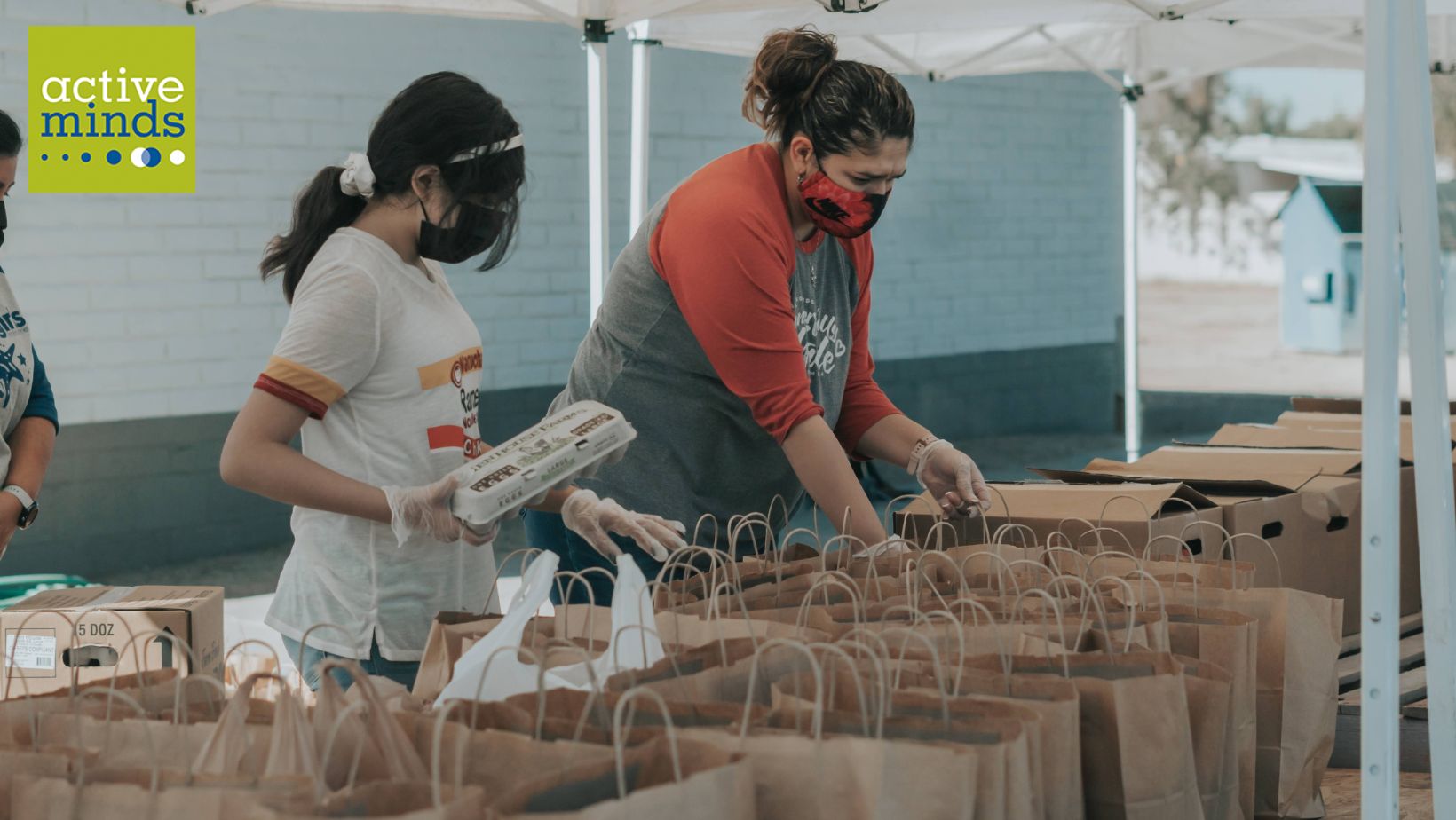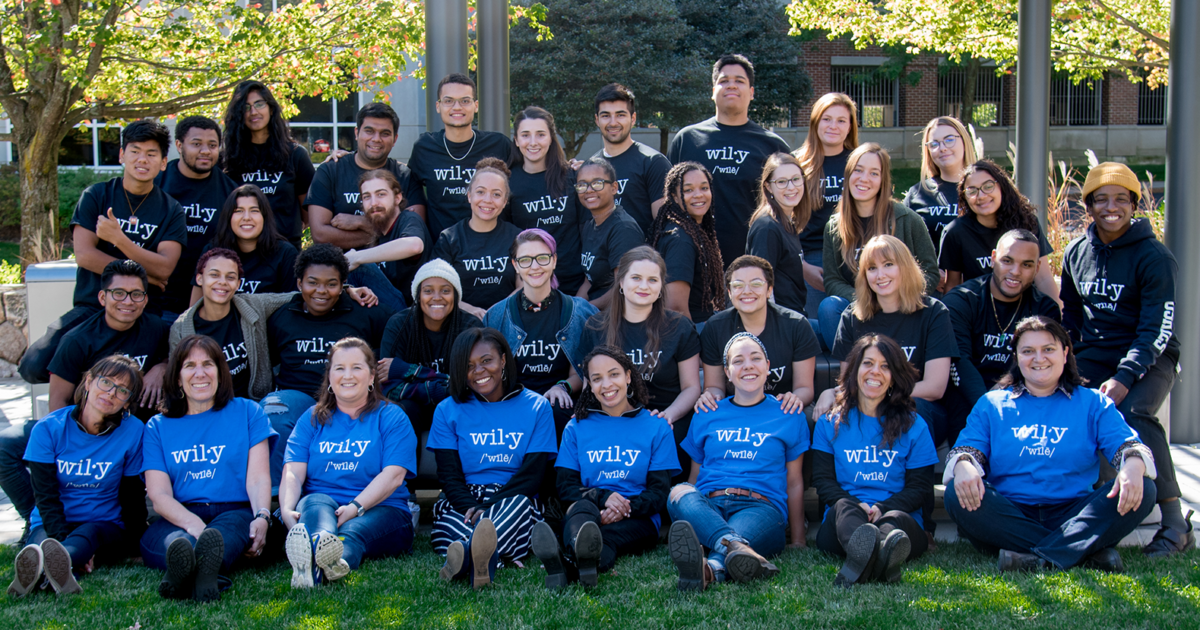When North Carolina locals Tom and Rachel Sullivan began cooking to-go meals for a college student in their neighborhood after Covid shut down university dining halls, they didn’t expect a viral TikTok to propel their reach to 14 nearby universities. However, their extra meal for one student soon grew to a biweekly rotation serving over 800 students.
“At first we were kind of like, let’s just see if anyone else would come over and wants free food,” Rachel said.
Using TikTok to spread awareness, the couple decided to host their first meal over Memorial Day weekend last year. “One [student] wrote us the nicest thing about what she was going through and what that meal meant,” Tom said. “And from there, it just grew.”
The discontinuation of campus services is not a problem unique to Covid-related shutdowns. It affects students nationwide each summer. On some campuses, dining halls close their doors completely or operate on reduced hours, and some students who purchase meal plans during the academic year may not have the funds to extend them into the summer. Additionally, students may return home to at-risk communities or food insecure homes, and struggle with transitioning back into these environments after experiencing a reprieve during the school year.
One in three college students faces food insecurity, a growing problem that can impact a student’s academic performance, well-being, and sense of community, among other negative consequences. For low-income students, prioritizing direct college costs like tuition and fees can limit the ability to cover food and housing expenses. Specifically, first-generation students may be at a greater disadvantage than other students due to inadequate resources educating them on financial aid or scholarship options, thus resulting in limited funding for their college expenses.
It is clear that the same issues that affect students during the school year continue into the summer – but there are less resources. While campuses generally fail to address the issues with proper, large-scale initiatives, many organic efforts are on the rise across the country.
Natalie Shaak, the Operations Manager of the Center for Hunger-Free Communities at Drexel University, emphasized that students have limited access to food service providers during the summer, both on- and potentially off-campus. Campus events, such as club meetings, that offer free food typically don’t convene in the summer months, and students have fewer interactions with campus staff, which reduces opportunities to be connected to resources. Additionally, “college towns” can shut down during the summer, leaving students with limited options – specifically a limited number of affordable options to obtain nutritious foods. The reduced number of on-campus jobs may also impact students’ financial situations, especially for students dependent on work study funds during the academic year. Offering summer jobs with livable wages on-campus or directing students towards paid summer roles can help alleviate these additional financial stressors. “If students don’t have the money that they need to eat, they are typically going to make choices to not eat or they’re going to eat less healthy food than they should,” Shaak said. “That’s the key to this whole conversation. It’s not about not eating, it’s about students not eating the nutritious food that they need for their bodies to function.”
At the University of Maine, the Black Bear Exchange – a community food pantry and clothing swap – remains accessible during summer break, as their primary population is off-campus students. During the school year, students are allowed to take 15 items per week with unlimited produce, but this is upped to 25 over the summer as the exchange is only open biweekly. Lisa Morin, the program coordinator, hasn’t noticed the usual decrease in students using the program over the summer this year. However, most of the program’s staff members are graduate students, many of whom are unavailable in the summer, leaving the program short-staffed in these months. “It’s a commitment to make sure that the food pantry is going to stay open to support all those people, but it’s definitely one we want to make,” Morin said.
Frank Wertheim, an Associate Extension Professor of Agriculture/Horticulture with the University of Maine Cooperative Extension, emphasized that the students facing food insecurity are also more likely to experience homelessness. Furthermore, students of color and LGBTQ+ students experience higher levels of food insecurity than white or non-LGBTQ+ students, respectively. “Those stressors, plus the fact that they’re not eating regularly, obviously impacts their mental health and ability to stay engaged in school,” Wertheim said.
At Cabrillo Community College in Aptos, California, the Basic Needs (Rights), Retention, and Student Success Office provides help and resources for students experiencing food or housing instability, as well as academic and mental health support. As discovered in California’s 2018 #REALCOLLEGE survey, approximately 40% of Cabrillo students had experienced food insecurity in the past month (at the time of survey administration) and 22% were homeless at some point in the past year. According to rising sophomore Tanya Sorin, Cabrillo College recognizes food insecurity as the “#1 most important issue students face,” and has implemented various resources to provide support to the community.
It is clear that the same issues that affect students during the school year continue into the summer – but there are less resources.
Cabrillo College has eleven “resource spots” across campus that provide free food and living supplies (e.g., toilet paper, diapers, baby formula, clothing, hygiene kits, menstrual products, etc.), and does not require identification from students. The college also collaborates with CalFresh, a federally funded program that provides students with assistance in obtaining Electronic Benefit Transfers (EBT) to purchase food. Additionally, Cabrillo students host a table with fresh organic products at the Cabrillo College Fresh Food Market every Saturday, and also offer a drive-through option at their campus extension.
Other campuses have implemented meal-sharing programs to combat food insecurity through mutual aid efforts. At New York University, students can participate in Swipe It Forward, a program that allows students to donate their unused meal swipes to other students. Students in need of a meal swipe can ask the cashier to use the Swipe It Forward program at various dining halls across campus. The program has a ‘no questions asked’ policy – no student gets turned away. However, limitations of this service include only being able to donate up to three meal swipes per day, despite the lack of restrictions on students’ personal number of swipes per day.
Other initiatives on NYU’s campus include the university’s chapter of Share Meals, an organization dedicated to limiting food insecurity on college campuses. The organization hosts mukbangs – a live-streamed video where students can watch and interact through the chat feature. Prior to the mukbang, students are provided two free food vouchers that can be redeemed within a two-week period at local participating restaurants, with an emphasis on establishments promoting sustainable eating. Chloe Wiesenfeld, a rising sophomore at NYU and the Assistant Director of Share Meals, said that about 40-50 vouchers are distributed to students per week. During the event, the Share Meals’ team chef demonstrates quick, affordable recipes that students can do on their own. The mukbang also helps to promote community belonging and support students’ mental health. “During the mukbang, students can sit, eat, and chat, without having to worry about a meal for that night,” Winsenfeld said.
Similarly, Tom and Rachel Sullivan’s efforts aim to build a sense of community among students. “We know because of this [initiative] how big food insecurity is. But it’s very evident that there’s 100 different reasons people come,” Tom said. Following a week where three students died by suicide at University of North Carolina – Chapel Hill (UNC), the couple hosted a meal that was attended by many UNC students who wanted a break from the campus environment. Rachel noted that online, some students get the expectation that if they don’t need food, there’s no reason to come. However, the couple emphasized that all are welcome, and that they don’t want students to feel pressured to self-identify as needing resources – whatever their reason is for attending, Tom and Rachel are happy to have them there.
Having a mix of students come through for a multitude of reasons helps remove the stigma surrounding food insecurity. The couple has been on Zoom meetings with seven of the local universities, and offered their resources to students who would need additional meals beyond the biweekly events. “If you have a student who needs stuff during the week, I’ll make it. I’ll text them, they can come grab it. Never a problem,” Tom said, while still emphasizing that the student shouldn’t feel forced to come or need to expose their status to anyone, not even to him. “This is just an environment with resources.”
Not only do Tom and Rachel provide food to students, they also aim to provide nutritious food, often crafting a curated menu for each weekend. As self-described “foodies,” part of their goal is to recreate a meal they’ve eaten on their travels to make it unique for students. Some of their recent “menus” include Greek bowls with lamb meatballs and homemade tzatziki sauces, shrimp boils, chicken piccata, and chicken verde stews. Since Rachel has PCOS, the couple cooks gluten and dairy free recipes with unprocessed foods only. For students living with chronic health conditions or dietary restrictions, the availability of nutritious, tasteful foods that match their needs “means the world to them,” according to Tom.
Since the Sullivans are not affiliated with any of the universities, their efforts to feed college students are funded by donations and partnerships, such as GoFundMe and local farmers who are willing to provide produce for the meals. Without the financial support from universities, their efforts are fully community driven. “We made the decision that as long as funding comes, we’ll keep cooking. So we opened a GoFundMe, and it was filled in like a day,” Tom said.
The couple continues hosting meals throughout the summer, though on a slightly less regular basis, and hosted another Memorial Day event this year. In the summer, the couple meets many first-time attendees, typically students who are working multiple jobs. “It’s like, ‘I get a break,’ very noticeably,” Rachel said.
While independent, community-based efforts like the Sullivans’ are enormous resources for students, colleges and universities need to acknowledge the risks of ignoring the seasonal gap. “The folks in the counseling centers need to remember these things,” said Natalie Shaak. “Students aren’t going to have the nutrition that they need over the summer. It’s a rough time for mental health in general, and if you pile on not eating healthily on top of that, it’s just going to make it worse.”



